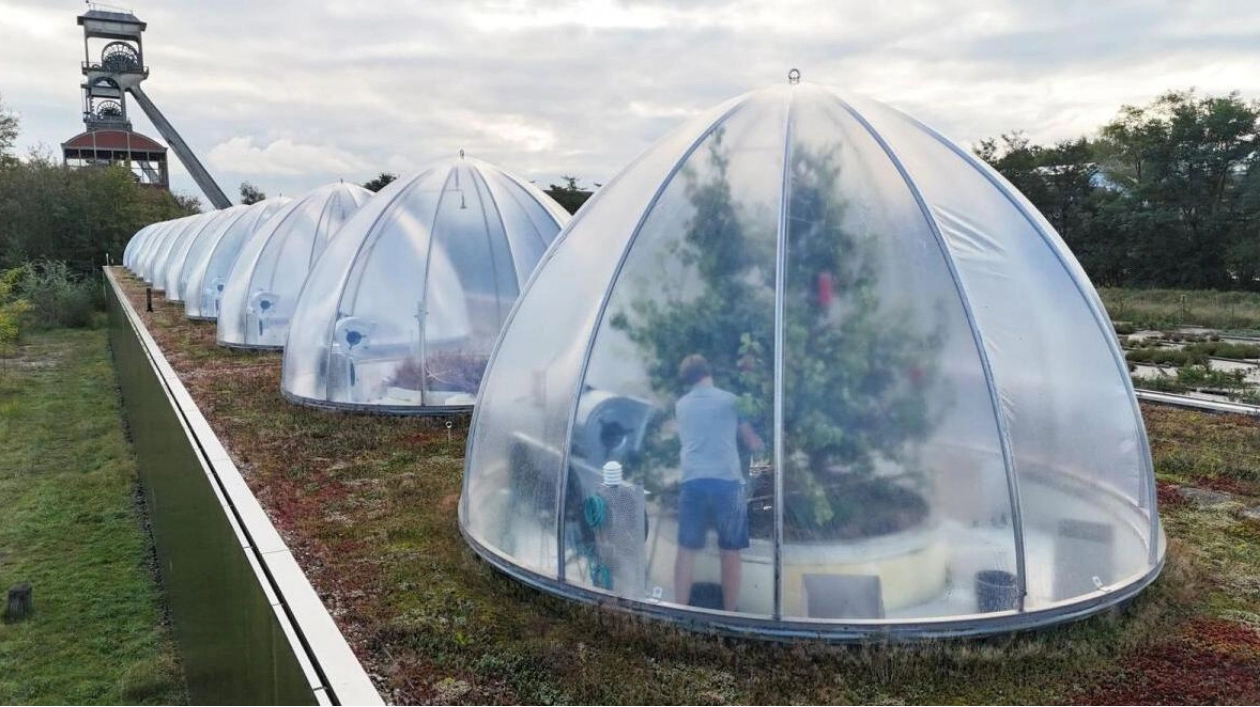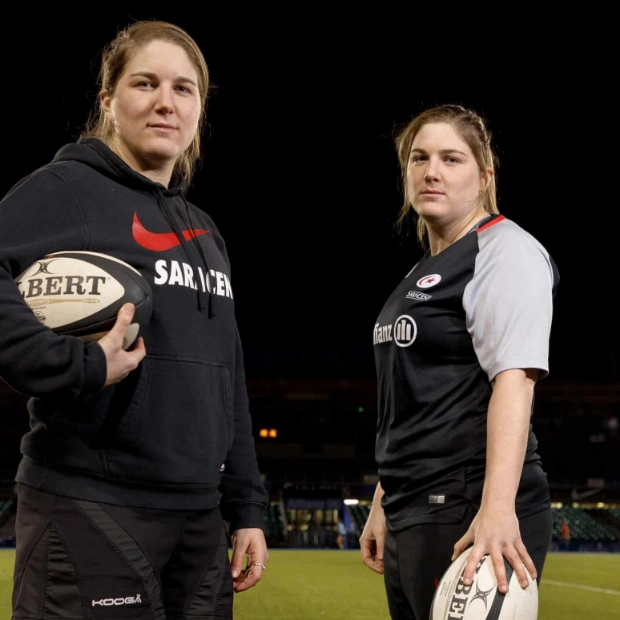In the Belgian province of Limburg, an orchard in the heart of the country's pear-growing region stands out for its unique feature: a cluster of 12 transparent domes, elevated by a mirrored wall above the surrounding nature park. Inside these domes, researchers are cultivating pears in a controlled environment designed to mimic the climate conditions expected in 2040. Their goal is to understand how global warming will impact Europe's fruit growers.
"We anticipate more heatwaves and less consistent precipitation, leading to more frequent droughts and floods. Additionally, we expect slightly higher overall temperatures," explained Francois Rineau, an associate professor at the University of Hasselt, regarding the climate conditions inside the domes. Preliminary results from the scientists' first harvest in 2023 indicate that Belgian pears might avoid some of the harshest effects of climate change, which is expected to reduce certain crop yields and increase irrigation costs for growers.
"The impact of climate change on pear quality by 2040 was minimal. However, we did observe differences in ecosystem functioning," Rineau noted, adding that an earlier growing season in the 2040 simulation seemed to enhance the ecosystem's ability to absorb CO2. Given the year-to-year variability, a single year cannot fully capture the intermittent extreme weather and other climate changes that can devastate crops. The ongoing three-year experiment will encompass three harvests.
This year's harvest of 2040-era pears is being analyzed at the Flanders Centre of Postharvest Technology (VCBT) to assess their size, firmness, and sugar content, comparing them to pears grown in domes simulating today's climate. "If temperatures are higher on the trees, pears tend to be less firm and have higher sugar content," said VCBT researcher Dorien Vanhees. This is concerning for growers, as less-firm fruit has a shorter shelf life, reducing the quantity of pears available for sale.
Recent years have seen European pear growers affected by floods, hail, and drought, as climate change starts to influence growing patterns. Belgium's pear production is projected to drop by 27% this year, according to the World Apple and Pear Association, due to factors including an unusually early bloom and a late frost.






